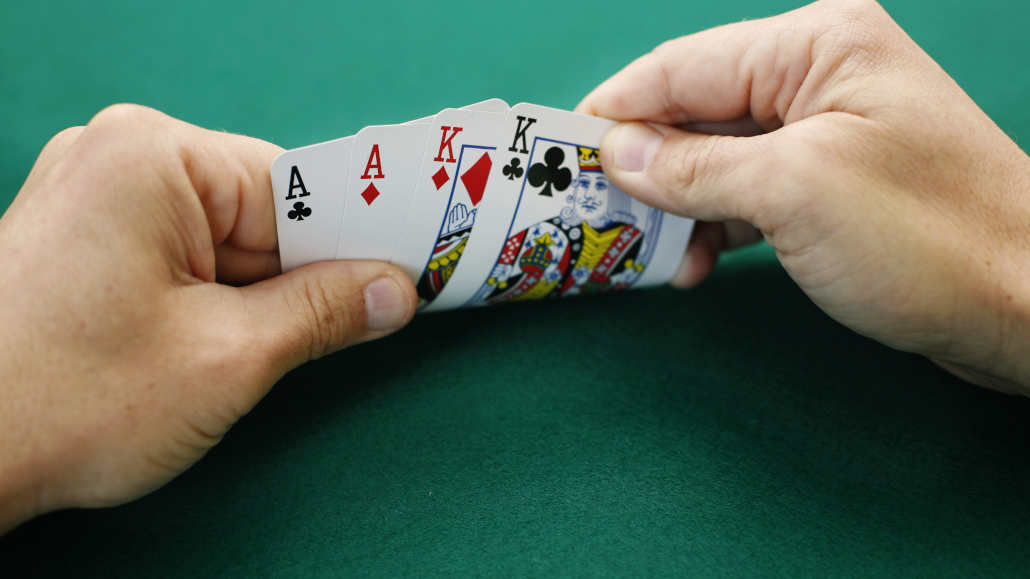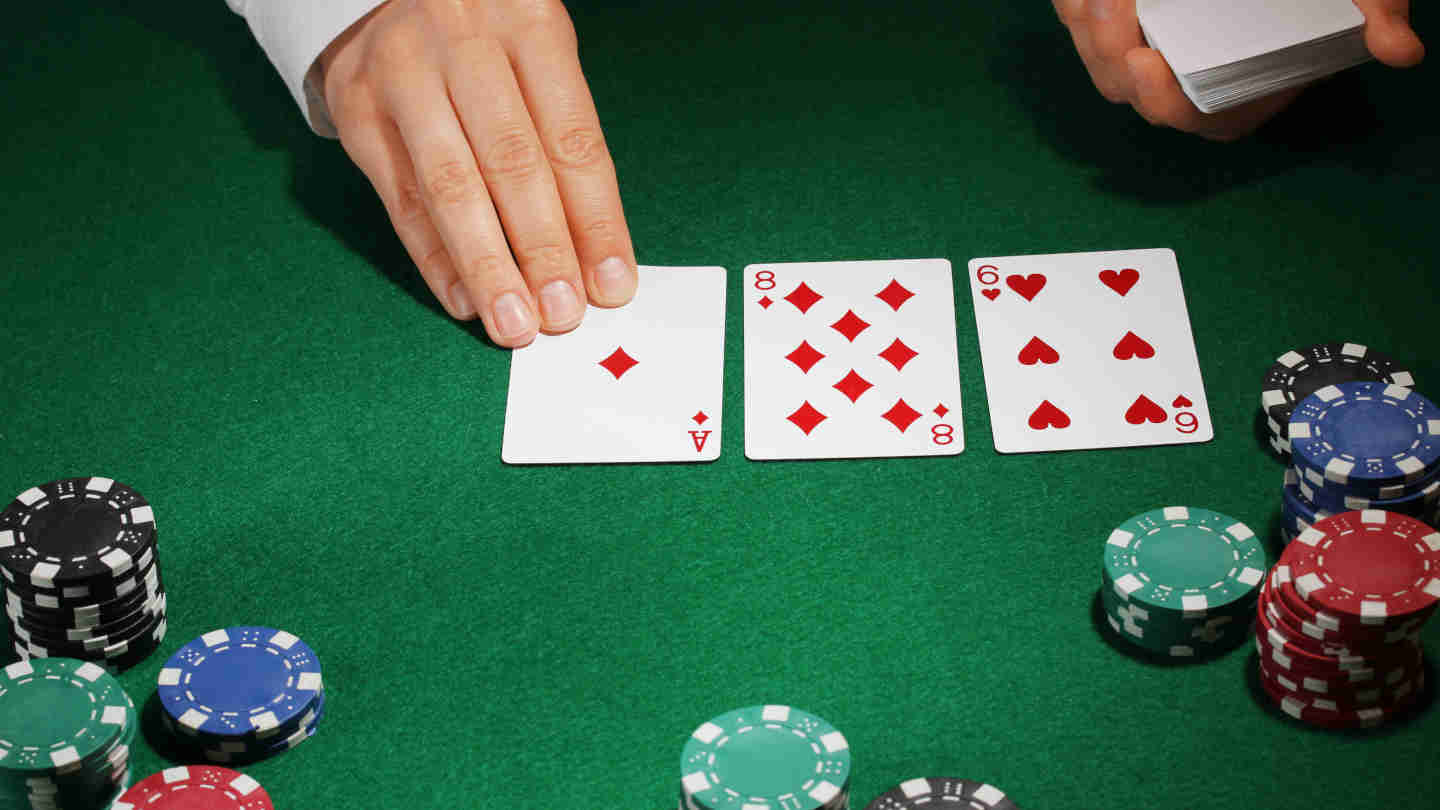Best Omaha Starting Hands – What Are the Top Hands in PLO?

10 minutes
The popularity of Pot Limit Omaha has grown tremendously in recent years, with more and more players growing tired of always playing the same old game with just two hole cards.
Omaha is an incredibly exciting poker game that follows the same seating and betting patterns of Texas Hold’em, which makes it very easy for Hold’em players to transition into.
However, one major thing Hold’em players often have trouble with is selecting the best starting hands in Omaha and playing them the right way.
There are way more possible PLO starting hands than there are in Texas Hold’em. It’s easy to get confused and play too many hands before the flop.
If you struggle with this as well, you have come to the right place. I will teach you what the best Omaha starting hands are and how to choose cards with which to play pots in this game.
How to Choose Your Starting Hands in PLO
One of the biggest differences between Texas Hold’em and Omaha is the way you should be approaching the preflop betting round.
For one, Omaha is always played as a pot limit game. This means there are limitations to how much you can raise and how much you can bet on later streets.
Furthermore, you receive four cards instead of two. Thus, there will be way more PLO starting hands you can get dealt, many of which are completely unplayable.
However, you will often see players play way too many hands in PLO games, to a point where some players play nearly every hand they are dealt.
Unlike Texas Hold’em, where it is pretty easy to know which hands are strong in which situation, you should be approaching your best Omaha starting hands selection based on the following parameters:
- Position
- High Cards
- Suitedness and Connectivity
- Nuts Potential
Position
Since I am talking about the best Omaha starting hands, you may be wondering what position has to do with anything. And yet, the position actually has a ton to do with your hand selection in PLO.
Since the game is played with four hole cards and pots often go multi-way, especially in weaker live games, it can be very difficult to navigate pots when you are out of position.
This is why you should only be playing the absolute premium hands in poker positions that guarantee you will be OOP postflop, such as UTG and in the blinds.
In these positions, you should be doing a ton of folding with everything but absolute premium cards.
Even with a hand like AA that is not accompanied by suited and connected cards, you should play your cards fairly passively in most cases.
Of course, there are exceptions to this rule, such as when you are short-stacked in a tournament and happy to get the money in with bad aces.

In deep-stacked cash games, you will want to have a hand that is strong in all three of the other categories to play from bad positions.
If you are on the button, on the other hand, you may want to play a bit more loosely and potentially raise and take control of the hand. You can do this even with just a suited ace or a reasonably connected hand that does not qualify as a premium.
High Cards
Having high cards in your hand instead of low cards is always a big plus in Omaha and is another trap that novice players often fall into.
Some players love to chase straights and full houses with baby cards, expecting their opponents to have high cards in their hands.
However, there is a big problem with that.
Most big PLO hands are won by hands like straights, flushes, and full houses. Holding baby cards, you will often end up having the low end of a straight, a small flush, or a bottom full house.
Hands like 6♥4♥3♦2♦ or 7♠5♠3♥3♦ may look pretty and seem to have a lot of potential, but they are actually very trashy hands that you will not want to commit many chips with preflop.
While some of these hands may be good enough to play from the button at passive tables, you don’t really want to overdo it with them.
On the other hand, if you are holding A♠K♥J♣10♦, even without suits, you may want to play this hand. You will often win the pot when a lot of big cards hit, and you lock up the board with the nuts and full house re-draws.
Suitedness and Connectivity
The next important factors to look at when deciding whether to play your hand or not is if you have suited cards and how connected your cards are.

Suited cards are worth a lot in PLO, especially if you can have the nut suit, meaning you are drawing to the ace-high flush if your suit comes on the board.
If you can have two aces and the other two cards are suited with them, you have yourself a premium hand, regardless of what the other two cards are.
If you don’t have an ace in your hand, hands with a lot of suitedness and connectivity can still qualify as premiums, such as K♦J♥10♥9♦.
Yet, you should be careful with hands like these, as they will still often end up losing to a bigger flush when you do make your hand, which can be quite frustrating.
Nuts Potential
As a general rule of thumb, you should only be looking to commit a lot of money to the pot preflop with the best Omaha starting hands that are drawing to the nuts in all cases.
A hand like AAKJ double-suited will only make you nut flushes and top full houses, which means you will rarely end up playing a massive pot with the second-best hand.
Of course, you can’t play PLO just waiting for hands like these to get dealt. However, you can look for spots where you have as much nuts potential as possible.
Drawing to nut flushes, high sets, and high straights is always better than holding baby cards and hoping they somehow make it to the river as the best hand.
In fact, small pocket pairs are some of the worst PLO hands to play. You should avoid playing them altogether unless you have nice big suited cards to go with them.
Playing the Best Omaha Starting Hands before the Flop
Another common question that new PLO players often ask has to do with how to play the best starting Omaha hands when they do get them.
Since preflop betting is limited, it is not uncommon to see multiple players just flat-call your raise, which can make you instantly hate your pocket aces or kings.
You should not be concerned with what others are doing and should rather focus on how you are playing your cards.
Raising preflop instead of limping is still as good of an idea in PLO as it is in Texas Hold’em, although limps can make a bit of sense when you have position against overly aggressive players in the blinds, who are likely to raise it up and bloat the pot for you.
If you are holding one of the best Omaha hands, you should generally come in for a raise and let other players make the mistake of calling you with sub-par hands.
As I already discussed, you should make sure to play as many hands as possible in position, as playing PLO out of position is all but impossible.
When facing re-raises in PLO, provided you entered the pot with a good starting hand, you should almost always at least call. You will want to 4-bet your strongest hands in position and regain control of the pot when possible.
You should also not be afraid of preflop confrontations with strong Omaha starting hands, regardless of the variance that inevitably comes with them.
Don’t let your opponents overrun you by applying pressure preflop, as you always have a ton of equity against their hand to start with.
Big Pocket Pairs – Traps to Avoid
Big pocket pairs like AA and KK are absolute powerhouses in Texas Hold’em but are a lot weaker in PLO.
While the very best Omaha starting hands still contain either AA or KK, they are only very strong when combined with other strong cards.
For example, hands like A♠A♦J♠J♦or K♣K♠Q♣J♠ are very strong, but a hand like K♠K♦8♥5♣ doesn’t even crack the top 100 hands you can get dealt.

In fact, big pocket pairs without help from other cards are often quite bad in PLO, especially if the stacks are deep.
To win a big pot holding pocket kings without extra connected cards, you will need to make a set and have it hold up until showdown or turn into a full house.
The same can be said for pocket aces, which may end up winning some decent pots and help you pretend you have the nut flush on some boards, but will generally not win too many big pots on their own.
Dangers of Low and Mid Rundowns
Rundowns like JT98 double-suited are absolute powerhouses in PLO and hands that you don’t mind facing any kind of pressure before the flop.
However, players often fall into the trap of believing the same can be said for a hand like 7642 double-suited, which is actually a terrible hand in most scenarios.
Not only does this type of hand have gaps and is not a true rundown, but it is also made up of baby cards that will very rarely give you the nuts.
Drawing at the low ends of straights is a complete suicide in Omaha, and you should avoid these situations like a plague.
As a beginner, I would advise you to fold these types of hands immediately and even just discard your hand in most cases as soon as you see two of these cards.
This will help you reduce variance, avoid making terribly difficult decisions, and save you money in the long run, as it is almost impossible to actually make a profit with hands like these.

Best Omaha Starting Hands Ranked
I have spent some time trying to explain how to pick your starting hands in PLO because the answer is not as simple as it would be in Texas Hold’em.
That said, there is actually a list of best starting hands in Omaha that I can (and will) share with you, but mind the fact that you will rarely be dealt any of these exact hands.
For that reason, I would highly recommend going over all the criteria I listed in choosing your PLO starting hands instead of just waiting to get the exact cards listed below.
All that said, here is the list of the very best hands you can get dealt in PLO:
- AAKK
- AAJT
- AAQQ
- AAJJ
- AATT
- AA99
- AAxx (with a pair)
- JT98
- KKQQ
- KKJJ
Keep in mind that all these hands are only real powerhouses when they have suited cards in them, and average hands in case they don’t, especially if you are playing with deep stacks.
If your cards are not suited, you will probably be better off holding JT98 than AAxx in most cases, although the latter can make some very strong sets and full houses.
How Important Is the Starting Hand in PLO?
Finally, there is a school of PLO that teaches starting cards are not very important in PLO at all, and it is important to understand that this school of thought is completely wrong.
Your starting hand and position are two of the most important factors to consider in PLO. This is a game in which the nuts wins the hand more often than most others.
For that reason, playing too many hands that have a low probability of making the nuts will make you a long-term loser, regardless of how astute you may be playing postflop or how good your bluffing skills are.
At the end of the day, it will be impossible to bluff out someone holding the nuts or multiple draws to the nuts, and you will be burning money in the process of doing so.
Make sure to play as many hands as you can in position, fold garbage hands before the flop, and wait for the right spots to exploit the fact most other players are playing way too many hands.
- Poker Squeeze Play – Which Hands Make the Most Sense for Squeezing? - August 10, 2023
- How to Play Low Pocket Pairs in Texas Hold’em - July 29, 2023
- How to Make Deep Runs in MTTs More Often - July 22, 2023














